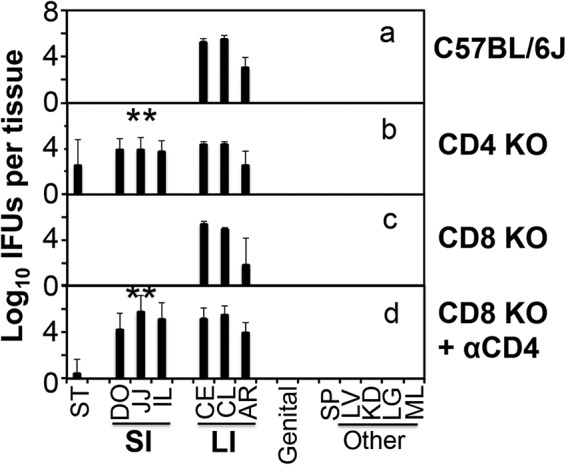FIG 3.

Chlamydia muridarum colonization in the gastrointestinal tract of mice deficient in CD4+ or CD8+ T cells. Mice without (a; n = 4) or with deficiency in CD4+ T cells (CD4 KO) (b; n = 3) or CD8+ T cells (CD8 KO) (c and d; n = 4 for each panel) were intragastrically inoculated with Chlamydia muridarum at 2 × 105 IFU per mouse. Some CD8+ KO mice were also treated with an anti-CD4 antibody (d). On day 28 after infection, all mice were sacrificed for monitoring live chlamydial organisms in various tissues as described in the Fig. 2 legend and shown on the x axis. The number of live organisms recovered from each tissue sample was expressed as log10 IFU. Note that mice deficient in CD4+ but not CD8+ T cells were defective in clearing chlamydial colonization in the small intestine and that depletion with an anti-CD4 antibody made the CD8 KO mice susceptible to chlamydial colonization in the small intestine. **, P < 0.01 (Wilcoxon, panel b versus panel a and panel d versus panel a or c). Data were acquired from 3 independent experiments.
